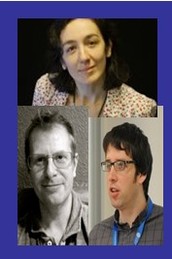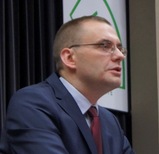 Article Discussion: 'Review of developments in research into English as a Lingua Franca’ Date: 9 - 20 July 2012 Article: 'Review of developments in research into English as a Lingua Franca’, by Jennifer Jenkins, Alessia Cogo and Martin Dewey Guest moderators: Will Baker (University of Southampton), Alessia Cogo (University of Southampton) and Martin Dewey (King’s College London) Location: ReSIG YahooGroup Download article here This event is open to ReSIG members and non-members. You can join our YahooGroup for free here. How to participate: - Join our YahooGroup at the link above. if you're not a member yet. - Download the article at the link above. - Read the article. - To help you get ready for the discussion, here are some possible questions, suggested by our guest moderators, apart from ones you might have of your own: 1. “ELF researchers feel their responsibility is to make current research findings accessible in a way that enables teachers to reconsider their beliefs and practices and make informed decisions about the significance of ELF for their own individual teaching contexts” (p. 306). Do you think this is an appropriate aim for ELF research? Do you think ELF researchers have been successful in doing this? If not, how might ELF research engage more with language teachers? 2. The article comments that language use in ELF communication is highly fluid and does not conform to a pre-defined set of norms (see p. 288-292). What implications does this raise for how teachers approach language in the classroom? What forms of English can or should we teach and how should we teach them? 3. Research indicates that ELF is used to represent and create a range of ‘cultures’ that goes beyond the traditional associations of English with UK and US culture (however these might be defined) (e.g. Baker, 2009, cited on p. 297). What does this mean for the cultural content of English language classrooms? 4. “BELF studies demonstrate that intercultural communication skills rather than NS English correctness are key in BELF contexts, and BELF researchers therefore tend to conclude that communication and accommodation, rather than mastery of NS English forms, should be the focus of business English instruction” (p.299). How do you feel about this conclusion given your own experiences of teaching (business) English? 5. Some of the studies cited in the article report that in ELF situations native speakers of English can be more difficult to understand than non-native speakers (see e.g. Kolocsai 2009, cited p. 302). Why do you think this might be? What consequences does this have for the model of an ‘ideal speaker of English’ that might be adopted? 6. One of the gaps in ELF research highlighted by the article is in writing. What implications, if any, do you think ELF might have for writing and the teaching of writing? 7. “As well as the signaling of non-understanding, the focus of ELF pragmatics research has been on how ELF speakers resolve instances of miscommunication, i.e. the strategies they use to respond to and negotiate an initial possibility of non-understanding.” (p. 293). Can insights from ELF pragmatics inform classroom pedagogy? What kind of pragmatic strategies and skills can be taught for communication in ELF contexts? 8. Discussions of ELF research have often indicated that current language testing is in need of considerable restructuring. What challenges does ELF research present to existing assessment practices? 9. What do you feel are the implications of ELF for pre-service and in-service teacher education? Should ELF be included in the syllabus for teacher training programmes (e.g. on CELTA and/or Delta)? 21 May - 1 June 2012: Article Discussion: Materials development for language learning and teaching14/5/2012
 Article Discussion: 'Materials development for language learning and teaching’ Date: 21 May - 1 June 2012 Article: 'Materials development for language learning and teaching', by Brian Tomlinson Guest moderator: John Gray, Institute of Education, University of London. Location: ReSIG YahooGroup Download article here This event is open to ReSIG members and non-members. You can join our YahooGroup for free here. How to participate:
- Join our YahooGroup at the link above. if you're not a member yet. - Download the article at the link above. - Read the article. - To help you get ready for the discussion, here are some possible questions, suggested by John, apart from ones you might have of your own: 1. Do you agree with the suggestion that for materials development to become more credible, it needs to become more empirical? If so, which areas would you identify as being in need of research? 2. Tomlinson’s paper – in line with the tendency of much of the materials literature – is focused mainly on materials evaluation rather than materials analysis. From a research perspective, how do you view this tendency? 3. What is the best way to go about evaluating materials - given the proliferation of checklists and frameworks for materials evaluation, and even, as reported here, a set of questions to evaluate such instruments? 4. Given that most good teachers are said to engage in materials adaptation, what avenues for research do you see in this area? 5. The article points out that few academic theorists and researchers are actually involved in materials writing – although there have been exceptions in the past (e.g. Stephen Pit Corder) and in the present (Mike McCarthy). Who should write materials in your view? 6. What do you see as the relevance of corpus descriptions of language to materials writing – particularly with regard to materials for use in your own setting? 7. The paper suggests that both initial and in-service teacher education could do more to facilitate a move away from reliance on textbooks. Do you agree with this suggestion and, if so, how might it be facilitated? 8. The article mentions the uses of new technologies (e.g. mobile phones) in making language learning materials available to students. What kinds of research do think need to be undertaken to explore the actual affordances of new technologies for materials development? 9. In one study carried out in three countries Tomlinson reports that 92% of the teachers consulted regularly used a coursebook and that 78% of them were negative about coursebooks. How can this be explained? 10. In the section on ideology in materials, Tomlinson suggests that it is important for teachers and materials writers to develop ‘constructive criticality’ – do you agree, and if so, how might this be done?  Article Discussion: Second language acquisition, teacher education and language pedagogy_ Date: 20-24 February 2012 Article: 'Second language acquisition, teacher education and language pedagogy', by Rod Ellis Guest moderator: Miroslaw Pawlak, Adam Mickiewics University in Kalisz, Poland. Location: ReSIG YahooGroup Download article here. This event is open both to ReSIG members and to non-members. You can join our YahooGroup for free here. How to participate:
- Join our YahooGroup at the link above. if you're not a member yet. - Download the article at the link above. - Read the article. - To help you get ready for the discussion, here are a few prompts for discussion, suggested by Mirek: 1. Is there any value in research conducted by scholars who have little experience in actual teaching? 2. Is it at all possible to reconcile the interests of theorists, researchers and practitioners for the benefit of language learning and teaching? 3. What is the role of technical (i.e. theory and research) and practical (i.e. ability to react to the exigencies of the classroom) knowledge in everyday teaching? 4. Which of the approaches mentioned by Ellis to bridging the gap between researchers and teachers is the most beneficial and feasible - that is stating pedagogical implications, making SLA accessible, research-teacher collaboration, teacher research? Are there any other solutions? 5. What research areas are the most promising in terms of bridging the gap between research and teaching? 6. How realistic is teacher research and to what extent can it offer valuable insights for research and pedagogy? 7. What is the role of teacher educators in translating theoretical positions and research findings into guidelines for classroom practice? 8. How useful are the principles listed at the end of the article for designing and running a course for future teachers?  _Article Discussion: Language teacher research engagement Date: 12-16 December 2011 Article: Language teacher research engagement, by Simon Borg Guest moderator: Simon Borg, University of Leeds, UK Location: ReSIG YahooGroup Download article here This event is open to ReSIG members and non-members. You can join our YahooGroup for free here. How to participate:
- Join our YahooGroup at the link above. if you're not a member yet. - Download the article at the link above. - Read the article. - To help you get ready for the discussion, here are a few prompts for discussion, suggested by Simon: 1. Are there any claims in the study which either support or contradict your personal experience and/or beliefs? 2. In your context, is it reasonable to expect teachers who are not engaged in formal study to engage with language teaching research? Why or why not? 3. How do you feel about the notion of teachers as consumers of published research? 4. In your context, is it reasonable to expect teachers who are not doing a course (e.g. an MA or Delta) to engage in language teaching research? Why or why not? To what extent do the barriers listed in Table 2 pertain? Are there any others in your context? 5. The article argues that inquiry which is not made public should not be called research. What are your views on this? 6. The literature raises concerns about the quality of the classroom-oriented inquiries that practising teachers often undertake. Is it fair to assess such research using the criteria that apply to research more generally? 7. What role can school leaders or departmental heads play in promoting research engagement in their schools? Do you have any positive or negative experience to cite in this respect? 8. What kinds of initiatives in language teaching might increase the extent to which teachers read and do published research? How might associations such as IATEFL contribute to such initiatives? 9. To what extent do the private EFL sector and the state EFL sector face similar challenges in enabling teachers to engage in and with research? Much less evidence exists about the state sector. 10. Respond, in an open-ended manner, to any others issues in the paper which stimulate a reaction in you. - During the week of 12-16 December, make sure you check the posts on the YahooGroup at least once a day and add your contributions. |
AuthorWelcome to IATEFL ReSIG blog! Archives
September 2015
|
 RSS Feed
RSS Feed